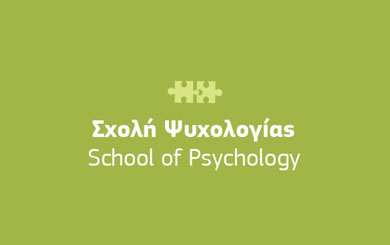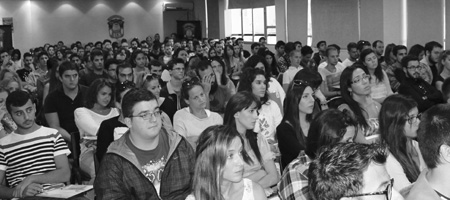

School of Psychology
- MSc Psychology of Addictions and Behavioural Change
- Professional Doctorate Counselling Psychology
- MSc Occupational Psychology
- MSc Forensic Psychology (with Psychotherapy)
- MSc Counselling and Psychology in Educational Settings
- MSc Applied Psychology: Health Psychology and Counselling
- MSc Applied Psychology: Clinical Psychology and Counselling
- MSc Integrative Counselling & Psychotherapy




BSc (Hons) Psychology & Counselling
-
Unique combination of Psychology & Counselling.
-
Meets the registration requirements of the British Psychological Society (BPS).
-
Flexible/ blended teaching, experiential learning, supervised placements.
-
Leads to the Professional Doctorate in Counselling Psychology.

Course Information
The School of Psychology at Mediterranean College is widely renowned as the leader in Greece, with over forty five years of experience in the provision of high quality University courses in Psychology. The BSc (Hons) Psychology & Counselling programme has been designed by the University of Wolverhampton and is in accordance with the requirements of the BPS (British Psychological Society), enabling graduates to apply for membership. Graduates are also granted a psychologist practitioner status in Greece.
It is one of a few accredited degrees that combine Psychology with Counselling, giving a competitive advantage to students who aspire to become counsellor/psychotherapists, with the ability to work in multiple settings or develop their own private practice. Students are given an invaluable opportunity to develop and apply their counselling skills in placement that takes place in collaborating settings, or in our in-house clinic. With those skills, graduates are eligible to directly pursue our Professional Doctorate in Counselling & Psychology, without having to go through the Master’s level.
With our blended learning approach, that combines on campus block teaching with online content, students are able to manage workloads in the context of other home or work commitments.
What you will study
You will study scientific approaches to understanding the mind, motivation, and behaviour of people, with modules covering theories, principles, ethics, and applications in the real-world. Areas of psychology that are covered include social, cognitive, health, clinical, & developmental psychologies, as well as the appropriate research methods. Along with the core Psychology content, you will be introduced to counselling theories and professional practice, and you will develop your counselling skills through in-class simulations and role-plays, as well as through supervised placement in Years 2 and 3.
At the start of your course, we support your transition into university by introducing study skills, time management, library skills, independent learning skills, and the core areas of psychological knowledge.
This framework for study of the mind, emotion, motivation and behaviour will be underpinned by historical and scientific background knowledge, with early modules including core debates and key competencies in psychology, research methods and current issues in the field. Our curriculum provides transferable skills while setting the groundwork for later specialist knowledge.
Later in your course you will be able to choose a specialist area to research, learning from the experience of professionals in the field in the production of your research project. Final year modules cover psychology as applied to clinical, occupational, and developmental/ educational contexts.
Why choose this course
- Διαθέτουμε τη μεγαλύτερη εμπειρία στην ελληνική ιδιωτική εκπαίδευση σε πανεπιστημιακές σπουδές Ψυχολογίας (1977), με εξειδίκευση σε σπουδές Συμβουλευτικής και Ψυχοθεραπείας.
- Mediterranean is the private provider with the longest tradition for Psychology studies in Greece, since 1977. Our portfolio of 15 innovative courses and our strong emphasis on Counselling and Psychotherapy showcases an unparalleled expertise and offers a holistic student experience.
- It is one of a few accredited programmes in Greece that combine Psychology with Counselling, with a clear Counselling stream across the 3 years of study.
- It follows the core Psychology curriculum as set by BPS (British Psychological Society), so you are eligible for Graduate Basis of Chartered Membership (GBC) and pursue chartered professions in psychology. At the same time. it meets the requirements to obtain a license to practice as a psychologist in Greece.
- Bilingual teaching (in Greek & English) gives you the language capacity to become a bilingual professional, with exceptional academic and career prospects.
- It includes compulsory placement in Years 2 & 3, where you develop your counselling skills in different settings of your choice (occupational, health, educational, etc), under the supervision of qualified psychologists.
- Its special focus on Work and Occupational Psychology (with placement) allows students to pursue careers in organisational/ business environments, as HR executives or business coaches.
- Teaching is experiential and interactive, including workshops, simulations, and role-plays, with the aid of our counselling suite, equipped with a one-way observation mirror and recording facilities.
- You have access to our in-house clinic - the ‘Carl Rogers Counselling Centre’ - where you can do observations, complete part of your placement and conduct research.
- Teaching staff are associate lecturers at the University of Wolverhampton, with academic expertise, clinical experience and continuous staff development, to provide the highest standard of teaching, academic content and student support.
- Our facilities operate at the cutting edge of research and practical application, consisting of computer labs, observation rooms, physical and digital libraries. These are equipped with psychometric tools, state-of-the art hardware, specialist data collection and analysis programmes, and an extensive collection of Greek and English textbooks.
- Our blended teaching and learning approach gives you the flexibility to study along with other professional/ personal engagements, without having to worry about geographical or physical constraints.
The modules are carried out in semesters, while teaching and learning takes place in various ways: online lectures & tutorials, on campus workshops & labs, asynchronous independent learning, role-plays, guest lectures, etc. You’ll have no written exams and you will be involved in more substantial assessment methods, such as essays, reports, presentations, portfolios and research.
Course Modules
Έτος 1
Bad Science
This module is designed to provide students with an understanding of the scientific process in psychology, including the collection, analysis and reporting of data. Heavy use will be made of examples of problematic practice, including the over-interpretation of results, poor reporting practices, etc. Students will learn to critically assess the evidence underlying scientific claims.
Core Debates & Key Competencies in Psychology
This module will provide support and guidance to assist you through some core debates in psychology whilst examining the historical context and how they contribute to the development of psychology as a discipline. The content of this module will encourage you to find and use credible evidence to support your arguments, read the most interesting and up-to-date sources of information and structure your arguments effectively. The skills developed in this module will allow you to identify key professional values for psychology, develop key writing skills in line with APA standards and provide a good foundation for study at Level 5.
Current Issues in Psychology
Building upon the learning from Core Debates in Psychology, Current Issues in Psychology takes theories and concepts in the core areas of Psychology: Biological, Cognitive, Developmental and Social Psychology and applies them to current issues the subject is facing. You will consider how the differing areas across Psychology can interact and come together with a common purpose. This module starts your development in considering a connected and multidisciplinary curriculum.
Research Methods in Psychology - Basic
This module introduces students to research in psychology. We will begin by considering different approaches to research, including the distinction between quantitative and qualitative methodologies. The various types of research design will be explored, but there will be particular emphasis on the experimental method. Students will then be introduced to crucial ethical considerations that need to be made when conducting psychological research (especially concerning deception). Students will also be given a chance to take part in a psychological experiment and will learn about ways of analysing and presenting data. As part of this, students will begin using the statistical software package SPSS. The module concludes with a discussion of some of the wider issues affecting psychological research, and also shows students how to report research findings.
Research Methods in Psychology - Intermediate
Research Methods Intermediate This module continues from Research Methods in Psychology: Basic and will provide you with a grounding in the use of inferential statistics and qualitative methods in Psychology. We will consider a variety of research tools from both quantitative and qualitative perspectives. By the end of the module, you will be able to select the appropriate statistical test for your data, carry out statistical analyses using SPSS, interpret statistical output obtained from SPSS and report experimental findings in an appropriate fashion. You will also receive instruction in the use of a variety of qualitative techniques, including interview techniques, organising and running focus groups, collecting observational data and conducting a thematic analysis. You will be able to gather a broader understanding of the variety of qualitative techniques at your disposal as well as the appropriate contexts in which to apply these techniques.
Theoretical Principles in Counselling
Theoretical principles in counselling is designed to introduce you to the practices of counselling and counselling psychology. The module will provide an overview of some of the current theories, issues and debates that are taking place in the world of counselling and mental health. There will be discussion and debate around ethics and theory as well as considering careers focused skills. There will be discussion and debate around ethics and theory as well as considering careers-focused skills.
English for Psychologists I
Students will develop their general English skills in reading, writing, listening and speaking, and be provided with an introduction to academic English. Students will develop their grammatical, phonological and general and subject specific lexical awareness. By the end of the module students’ language for academic study should be at a mid B2 on the CEFR equivalent to IELTS 5.5.
Έτος 2
Counseling Skills
Counselling Skills builds on "Theoretical Principles in Counselling" by considering the skills required to put counselling theory into practice. You will have the opportunity to develop skills in active listening, reflection and paraphrasing as well as understanding the principles behind these. You will engage in discussion and debates around ethics, professional values, and compassion alongside the skills relating to counselling.
Research Methods in Psychology - Advanced
Research Methods Advanced builds on the skills and knowledge developed in Research Methods Basic and Intermediate. This module is designed to equip students with skills in advanced research methods and analysis in psychology. Most of the skills developed in this module will have relevance to the workplace and will also enable the students to understand and evaluate how both research and data analysis relate to everyday life. We will examine a range of advanced research and analysis approaches. By the end of the module students will be able to report complex psychological findings with the help of statistical analysis software. This module forms an important step towards preparing students for their final year projects and towards becoming independent researchers.
Psychology in Context
Building upon material covered at Level 4 in Current Issues in Psychology, Psychology in Context takes real world issues at the individual, societal and organisational level and applies the different perspectives from the Psychology core domains of Biological, Cognitive, Developmental and Social Psychology to provide a coherent and multidisciplinary explanation. In addition, the module considers individual and cultural differences particularly when considering how Psychology can be used to provide interventions and strategies that make a real difference.
Preparing for your Research Project
Preparing for your research project builds on the work you have completed in research methods basic, intermediate and advanced and will advance your research skills, enabling you to work towards being an independent researcher.
Working in Psychology
Working in Psychology builds on the transferable skills and knowledge developed in Applied Psychology and Current Issues in Psychology. This module is designed to provide an insight into using psychology within a work context. You will have the opportunity to complete a short placement, reflect on improvement, design and propose an intervention for the organisation.
Intermediate English II
The module builds on Intermediate English 1 and further develops students’ general and academic English skills in reading, writing, listening and speaking. Students will be exposed to more advanced forms of academic English. Students will further develop their grammatical, phonological and general and subject specific lexical awareness. By the end of the module students’ language for academic study should be at a B2/B2+ on the CEFR equivalent to IELTS 6.0 or above.
Έτος 3
Applied Counselling
Applied counselling builds on both "Theoretical Principles of Counselling" and "Counselling Skills" You will look in further depth at the current and developing theories and practice in counselling, as well as completing a short placement within a counselling context (e.g. counselling center, charity). You will continue to engage in discussion and focus on your own skills as well as consider the ethics of practice.
Psychology Research Project
This module provides an opportunity to engage in a piece of research chosen, with a supervisor’s guidance, by the student as an independent piece of work that employs the skills that have been acquired during two years of psychology study. During the course of this individual piece of research the student will develop or refine the skills needed to design an ethically and methodologically sound piece of empirical research; execute a literature search for relevant published material; analyse the data collected and write a report on this that will include a critical appraisal of both the extant literature and one’s own findings.
Clinical Psychology
This module is designed to provide students with a foundation in the theory and practice of psychology in clinical settings, introducing issues in philosophy, assessment, formulation and treatment. Much of the material presented will take a critical view of clinical psychology both now and historically, and a range of non-standard interventions will be evaluated.
Developmental & Educational Psychology
This module is designed to provide students with the opportunity to explore psychological theories and research related to developmental and educational psychology and to apply them during problem-based learning. The module content covers a range of topics including psychological development in infancy, childhood and adolescence, specific learning difficulties, intellectual and developmental disabilities, mental health, exploration of the empirical evidence surrounding what may promote and inhibit learning and development and educational psychology practice.
Occupational Psychology
This module builds upon the Level 5 Working in Psychology module. It will explore the theory and practice of applying psychology in the workplace. The module covers all aspects of the BPS’ five areas of Occupational Psychology and will provide students with an understanding of issues around both the industrial side (e.g. recruitment and selection, training, performance management) and organisational side (organisational change, work design, human factors) of the discipline of Occupational Psychology.
Admission Requirements
This course is ideal for you, if you are a high school graduate of any discipline with the necessary English language skills, who aspires to become a Psychologist/ Counsellor – Psychotherapist, either with your own private practice or within an organisation.
The minimum English language requirement for the bilingual course (Greek and English) is equivalent to IELTS 4.5 (B1) and for the English-taught course is equivalent to IELTS 6.0 (B2). If you do not possess an official English language certificate, you can sit the College’s internal placement test.
Moreover, you’ll be asked to submit a reference letter from a tutor, and you’ll be called for an academic interview with the programme leader.
If you are a holder of an HND diploma or a University or College student in a relevant discipline, you may be granted advanced entry, through recognition of prior learning.
Application & Enrolment
We use a rolling admissions policy, so we accept applications throughout the calendar year until all available places are filled. Since this is one of the most popular courses at Mediterranean College, we urge you to submit your application in time.
We also offer multiple fee payment methods, individual payment plans and bursaries based on academic, athletic and socio-economic criteria.
Contact us today and find out more about this course and the available bursaries and funding opportunities. Our admissions advisors will provide you with all necessary information and will guide you through the application and enrolment process.
Degree recognition
The degree is recognised in Greece as professional equivalent to psychology degrees awarded by Greek state universities. This recognition process requires you to apply for professional equivalence at the Ministry of Education (ATEEN department). The license to practice Psychology is then issued by the regional Municipal Authorities.
The content of this course meets the academic requirements of the BPS (British Psychological Society). This means that upon graduation, you may register with the BPS on an individual basis, through the international route. Should you choose to continue your studies towards a Master’s or a PhD and develop clinical experience, you will then have the opportunity to become a Chartered Psychologist in the UK.
Click here for more information on the degree recognition procedure by the Greek authorities.
Postgraduate study
A Psychology degree allows you to choose from a variety of postgraduate courses. You can continue for a master’s degree in psychology or pursue a more psychotherapeutic approach, in Greece or at overseas universities. Your Counselling training enables you to directly pursue a Professional Doctorate in Counselling Psychology.
At Mediterranean College you can choose:
- Professional Doctorate in Counselling Psychology
- MSc Counselling and Psychology in Educational Settings
- MSc Applied Psychology: Clinical Psychology and Counselling
- MSc Applied Psychology: Health Psychology and Counselling
- MSc Forensic Psychology & Psychotherapy
- MSc Occupational Psychology
- MSc Integrative Counselling and Psychotherapy
You may also opt for the MSc Human Resources Management for a more managerial approach, or train to become a Special Education Professional, with the MA Inclusion and Special Educational Needs and Disability (ISEND).
Career prospects
You can become a psychologist/ counsellor with your own private practice, or seek employment at:
- Various counselling settings, such as mental health centers, counselling stations, community support units, social welfare units
- Schools
- Hospitals and clinics
- Rehabilitation & reintegration centres
- HR departments
- Research centres
- Centers for special education and special schools
- Humanitarian and developmental NGOs
Testimonials
At Mediterranean College I studied the BSc (Hons) Applied Psychology course, which offered me the necessary skills to be accepted for postgraduate studies in London (MSc Clinical Applications of Psychology – Kingston University London) and become a member of the British Psychological Society – MBPsS). Starting from scratch, the College and its outstanding academic tutors provided me the theoretical and practical background to be employed and continue to work until...
Spyros Vlaseros, BSc (Hons) Applied Psychology
I started my studies at Mediterranean College in 2008 when I followed the BSc in Psychology and Counselling course through the University of Teesside. Mediterranean College provided me with the foundation upon which I based my career. After completing the BSc, I moved to England, obtained two Master’s degrees and started working as a research assistant at the University of Teesside. I am completing now my final PhD year with...
Theodora Machaira, BSc (Hons) Psychological Sciences & Counselling
Completing the academic programme BSc in Counselling & Psychology at the Mediterranean College, I managed to register with the British Psychological Society as a Graduate Member, I have been working as an independent mental health professional with my private practice until today, Ι linked with other professionals in the Psychology and Mental Health field, I wrote two psychology books which have been officially published, and also, having an accredited (by...
Evangelos Kousiadis, BSc (Hons) Psychological Sciences & Counselling




